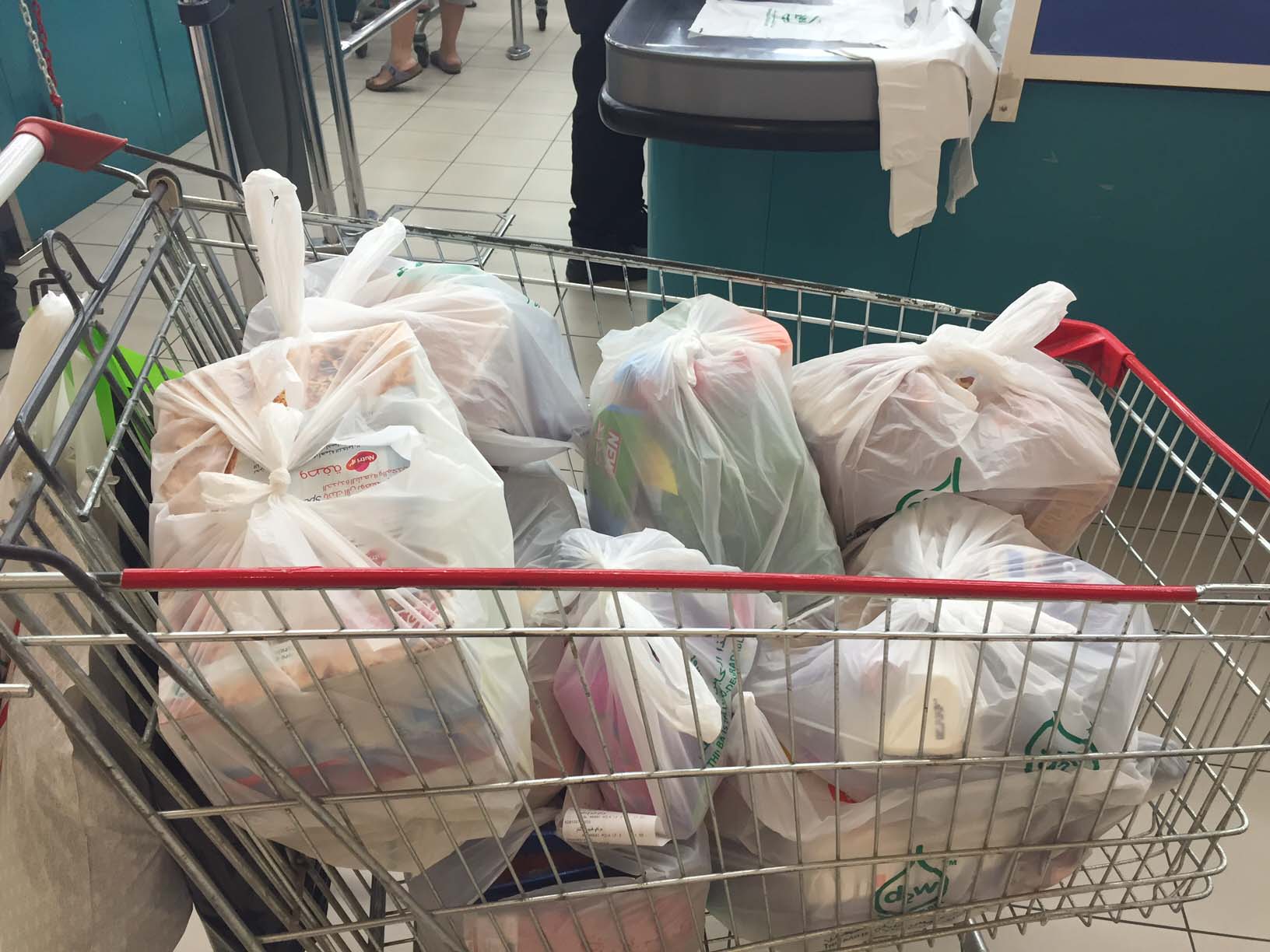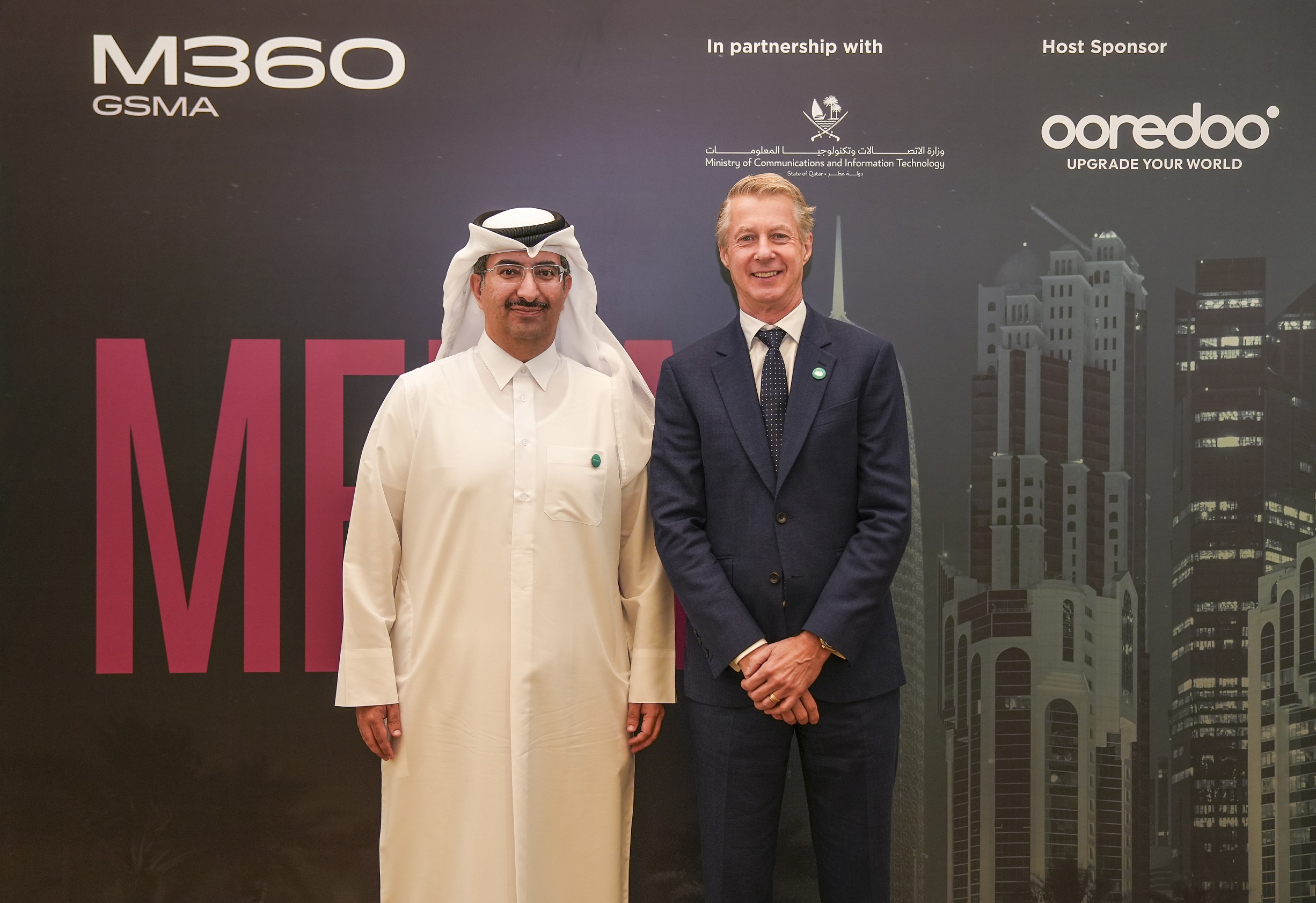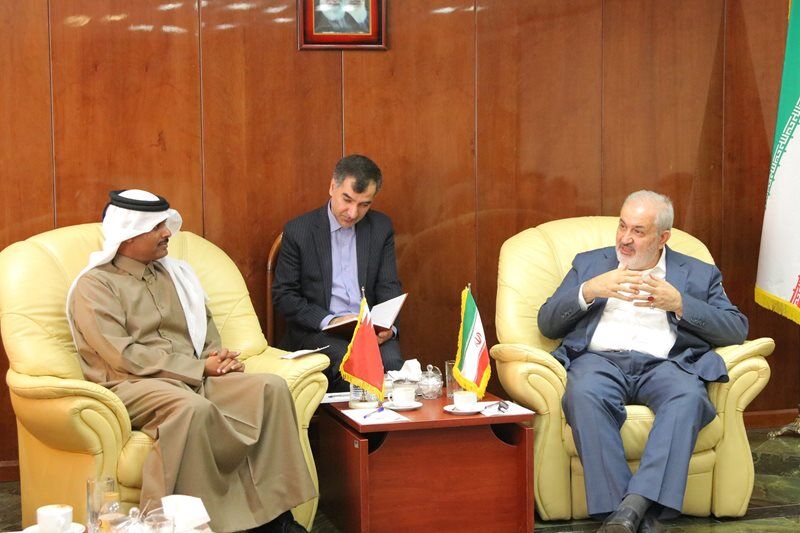
More than 100,000 biodegradable shopping bags will be given out to residents in the new year as part of a wider campaign to encourage greater environmental awareness in Qatar.
The “Go Green” initiative is being launched by a local group that plans to take their message to popular venues such as Villaggio and City Center malls, Katara Cultural Village and locations around the Pearl-Qatar.

Organizers also hope to visit schools and universities to spread their “say no to plastic bags” mission, said Ashwath Hegde, chief executive of Dial Doha International.
Speaking to Doha News, he said his company will be handing out biodegradable grocery bags made of cornstarch that decompose after around four months and leave no chemical traces in the environment.
Hegde said that he has held similar successful campaigns in the western Indian states of Goa and Karnataka, and has turned his attention to Qatar to help people realize there are alternatives to plastic shopping bags.
“We’re not asking people to buy anything, but to take the bags for free and try them to see for themselves how well they work.
I really want to start changing the national mindset here about the use of bags and to get people looking at how many bags they are taking and using everyday,” Hegde said.
Bags in Qatar
While the UK and some states in the US now charge customers for the use of conventional plastic bags as a way to get people to bring their own, shops and supermarkets in Qatar still give them away for free.
However, some stores are attempting to change the status quo.

For example, French supermarket Monoprix uses paper instead of plastic bags at checkout.
Meanwhile, Carrefour’s management has instructed its bag-packing staff to use fewer thin plastic bags and instead promote the sale of its thicker plastic “bags for life” at its tills.
Customers can reuse these and when the bags are worn out, have them replaced for free.
A spokesman for the French supermarket chain said they would also consider using more eco-friendly options such as the cornstarch bags in their stores in the future.
Benoit Vaillant told Doha News “we know it’s a big problem we need to tackle.” He continued:
“Plastic bags are a cost to us, they are bad for the environment and we are trying to get everyone to use fewer of them. We are encouraging the cashiers not to give so many bags to customers and as a result, the total number of bags we are using is going down…
We use bags made of recyclable materials in our stores in other countries and it is something we would definitely consider doing here (in Qatar).”
Environmental problem
Also know as plastarch materials (PSM) or bioplastic, cornstarch bags have been around for over a decade and completely biodegrade in compost, water or soil, leaving no harmful chemical traces.
If they are burnt, the smoke they emit is non-toxic, and the remaining ash can be used as a fertilizer.

In contrast, conventional plastic shopping bags take hundreds of years to break down and the vast majority of them are thrown in the garbage, rather than recycled.
They also blow away easily, and regularly wash up on shorelines across the world. According to data from the Ocean Conservancy’s annual International Coastal Cleanups, plastic bags are consistently among the top 10 pieces of trash collected on beaches globally.
They also threaten marine animals such as jellyfish and sea turtles, which mistake them for food.
Qatar has one of the world’s highest rates of waste production per capita, at around 1.6kg to 1.8kg each day. Daily, it produces at least 7,000 tons of waste, with 30 percent of that (2,100 tons) generated by households.
The vast majority of Qatar’s waste goes into landfills, and all three sites – in Umm Al-Afai for bulky and domestic waste, Rawda Rashed for construction and demolition waste, and Al-Krana for sewage waste – are all nearly full.
With the country’s population continuing to grow, the pressure is on to take urgent action.
Cognizant of the need to take action to encourage residents to waste less and recycle more, the National Development Strategy (2011-16) includes ambitious targets of ramping up recycling rates from 8 percent to 25 percent and reducing overall the amount of waste going in to landfill from 91 percent of all household waste, to 64 percent by 2016.

Earlier this year, plans were touted by a government official to introduce a mandatory recycling scheme for households, government organizations and public spaces.
However, no further details of the program have since been released.
Qatar has in the past made efforts to tackle its overuse of disposable plastics. In 2009, Qatar became one of the first countries in the Middle East to ban the use of plastic and polystyrene containers for hot food.
At the time, eateries were given a 90-day deadline to comply, but this was never enforced. In early 2012, the Ministry of the Environment announced that a new compliance date was taking effect.
However, the practice remains commonplace. Still, the Ministry of Municipality and Urban Planning (MMUP) has been tweeting about it in recent days, reminding eateries of the rules.
https://twitter.com/Baladiya1/status/667301258789715970
This follows a warning issued by Baladiya in August this year that, following customer complaints, it would be doing spot-checks on eating establishments to ensure they comply with the regulations.
Would you use cornstarch bags while shopping? Thoughts?







